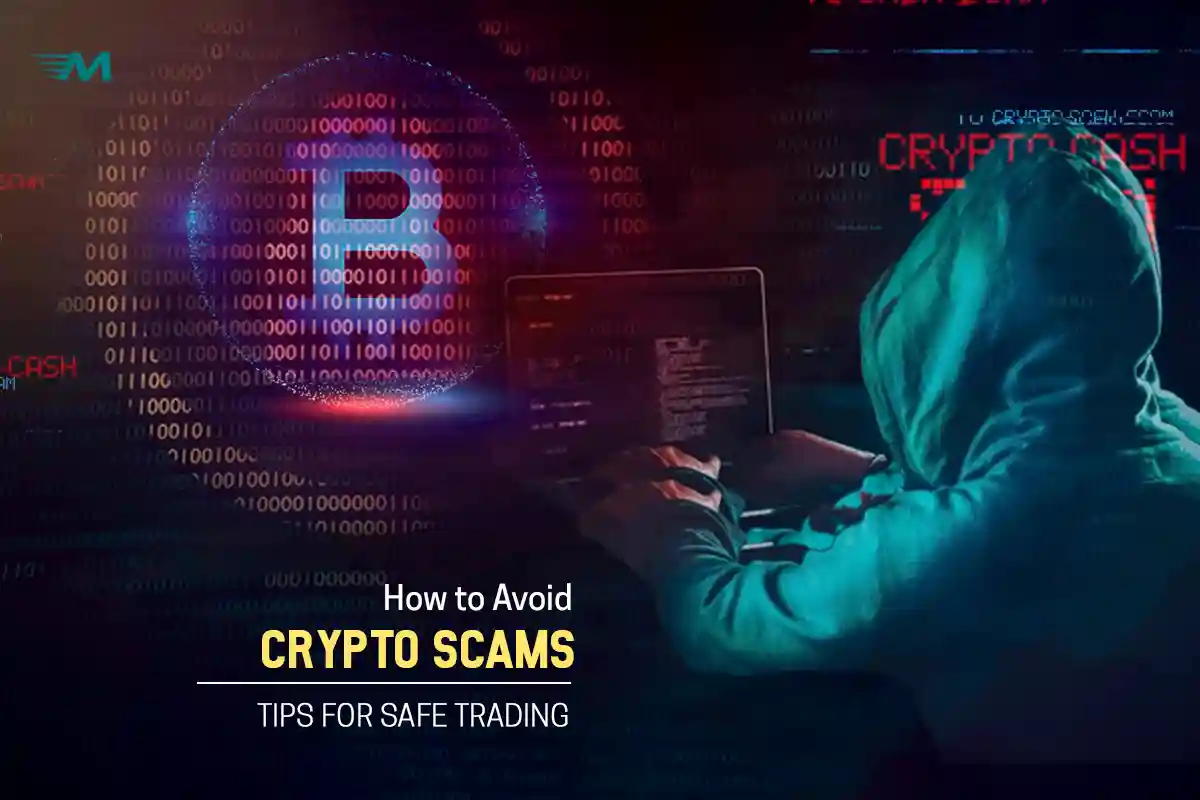How to Avoid Crypto Scams: Tips for Safe Trading
The rise of cryptocurrency has brought along a new wave of financial freedom but also a surge in scams. As more people get involved in buying, selling, and investing in digital assets, fraudsters are constantly evolving their tactics to exploit the unaware. If you’re thinking about investing in crypto or already are, learning how to avoid crypto scams is no longer optional it’s essential.
In this blog, we’ll guide you through the most common scams and give you actionable tips for safe trading in the crypto world.
Table of Contents
1. Understanding the Landscape: Why Crypto Is a Target for Scams
Cryptocurrency operates on decentralized platforms with little to no regulation. This gives scammers a perfect playground. With irreversible transactions and a lack of centralized control, it’s incredibly easy for criminals to disappear with your funds once a transaction is completed.
Moreover, many people new to crypto don’t fully understand how wallets, private keys, or exchanges work. This lack of awareness creates a fertile ground for scams like phishing, fake ICOs, rug pulls, and impersonations.
2. Common Types of Crypto Scams to Watch Out For
Before you can protect yourself, it’s important to recognize the red flags. Here are the most frequent crypto scams you might encounter:
a. Phishing Scams
These scams trick users into revealing private keys or seed phrases via fake websites or emails. If someone gets your private key, they get your crypto simple as that.
b. Pump and Dump Schemes
Here, a group artificially inflates the price of a coin, encouraging others to invest. Once the price peaks, the group sells off, and the value crashes.
c. Fake Exchanges and Wallets
Some scammers set up fake trading platforms or wallet apps that look legitimate. Once you deposit your funds, they vanish.
d. Impersonation Scams
Scammers often impersonate known influencers, crypto experts, or even exchange customer support to gain your trust and your funds.
e. Rug Pulls
This is common in decentralized finance (DeFi). Developers launch a project, attract investment, and then suddenly pull all the liquidity, leaving investors with worthless tokens.
3. Real-Life Examples of Crypto Scams
- BitConnect (2016–2018): Marketed as a lending platform, BitConnect was one of the biggest Ponzi schemes in crypto history. It promised high returns and disappeared with over $1 billion in investor funds.
- Squid Coin (2021): Riding on the popularity of the Netflix series “Squid Game,” this scam lured investors into buying a token that skyrocketed and then crashed to zero after the creators cashed out.
- Twitter Impersonation (Elon Musk Scam): Fake Elon Musk accounts promised to double Bitcoin if sent to a wallet. Many users lost thousands of dollars.
4. Tips to Avoid Crypto Scams
Now that you’re aware of the dangers, here’s how you can protect yourself:
Never Share Your Private Key
This cannot be stressed enough. Your private key or seed phrase is your crypto. Never share it with anyone not even “customer support.”
Verify Before You Invest
Always do thorough research before putting your money in any coin, exchange, or project. Use platforms like CoinMarketCap or CoinGecko to verify legitimacy.
Use Reputable Wallets and Exchanges
Stick with known platforms like Binance, Coinbase, or WazirX. Avoid new platforms without proper user reviews or regulatory compliance.
Watch for Too-Good-To-Be-True Promises
If someone guarantees profits, run away. Crypto is volatile, and no one can promise consistent returns.
Double-Check URLs
Always check the web address before logging into an exchange. Scammers often clone sites and change just one character in the URL to trick users.
5. Best Practices for Safe Crypto Trading
Let’s take it a step further. Safe trading isn’t just about avoiding scams it’s about adopting a mindset of constant vigilance.
- Enable 2FA (Two-Factor Authentication): It adds an extra layer of security to your exchange and wallet accounts.
- Keep Your Devices Secure: Use antivirus software and keep your operating system updated.
- Use Cold Wallets for Long-Term Holdings: Hardware wallets (cold wallets) are safer than hot wallets because they’re offline.
- Check Token Contracts on DeFi: Before buying a token, verify the contract address from official channels like the project’s website or Twitter.
- Educate Yourself Regularly: Follow trusted crypto news sources like CoinDesk, Decrypt, or The Block.
6. What to Do If You Fall for a Scam
If you become a victim, here’s what you should do immediately:
- Report to the Exchange: If the transaction happened on a platform, contact their support and flag the issue.
- Inform Authorities: File a report with your local cybercrime unit or the RBI’s Cyber Cell in India.
- Post Warnings on Forums: Share your story on Reddit, Telegram, or Discord groups to help others avoid the same scam.
- Never Chase Losses with More Risk: Don’t try to “win back” your stolen crypto with more risky trades. It usually leads to more losses.
7. The Future of Safe Crypto Trading
As governments work toward regulating the crypto market, security standards are slowly improving. AI tools, smart contract audits, and blockchain analytics firms are helping identify fraud patterns early.
However, the responsibility still lies with individuals. No amount of tech can replace common sense and cautious behavior.
Conclusion
Crypto investing is full of potential but also full of risks. Scammers are always looking for ways to trick new and even experienced investors. That’s why being informed and cautious is your best defense.Take time to research before investing, stick to trusted platforms, and never share your wallet details. Avoid FOMO and get-rich-quick traps.



